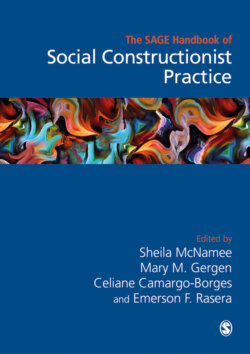Читать книгу The Sage Handbook of Social Constructionist Practice - Группа авторов - Страница 165
На сайте Литреса книга снята с продажи.
Meaning is Applied to Events, Objects, and Relationships
ОглавлениеWith the absence of the assumption of inherent and static meaning of events, objects, and relationships, alternative meanings can be explored and created relationally. Preferred meanings and exceptions to the problem as conceived are prominent ideas in social constructionist informed models of practice (Anderson and Gehart, 2012; DeJong and Berg, 2012; O'Hanlon and Weiner-Davis, 2003; White and Epston, 1989). From this position social workers might ask questions such as the following: How can we understand the problem? How did this problem come to be understood in this way? Are there other ways to understand it? Such questions naturally lead to an exploration of meaning and who participates in the construction of that meaning. Social construction emphasizes the contextual and relational creation of meaning, and perspectival questions are designed to emphasize, explore, and develop hoped-for futures by focusing on the perspective of the other: If your grandfather were here what ideas might he have about the problem? Would your favorite teacher agree about this conclusion? These are questions designed to explore the meaning brought to life events and identity conclusions. At the mezzo level a social worker might work with an impoverished community to recapture and make public its historical and current identity by organizing a public space where local artists can display their work; assisting the public sharing of neighborhood history and stories; facilitating a space for local poetry, music, and self-expression; and documenting and sharing the positive history and development of the community. Each of these examples is a definitional act in which preferred meanings and identity conclusions are offered publicly.
